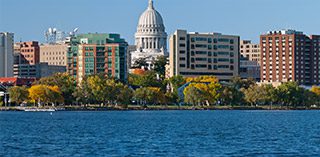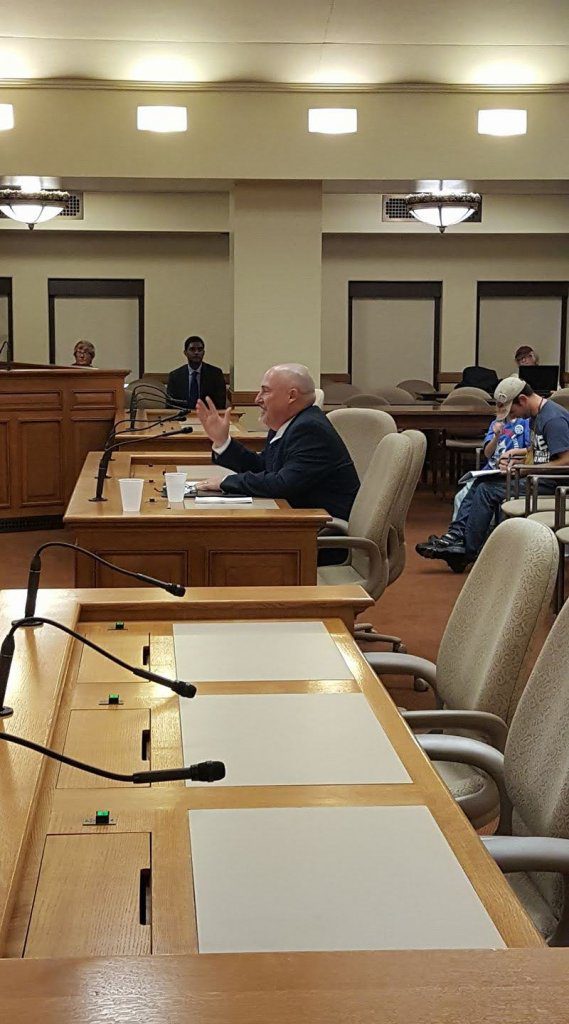The Felzkowski/Swearingen Wakesports Bill – Next Legislative Steps
Understanding the legislative process of the AB656/SB680
As Wisconsin Lakes previously reported, the wakesports bill authored by Sen. Mary Felzkowski (R-Tomahawk) and Rep. Rob Swearingen (R-Rhinelander) was introduced into the Wisconsin Legislature in late November.
We’ve received many questions regarding what’s next for the bill in the legislative process. Here’s a primer on where AB656 and SB680 might be headed:
BACKGROUND

First, a little background. All bills in Wisconsin are drafted by the Legislative Reference Bureau, a non-partisan agency that also is in charge of publishing the official statutes and the Wisconsin Blue Book. The authors of the wakesports bill asked LRB drafters to write the bill, who took their request and crafted it into language that conformed with the statutes. This was “LRB-3518” as we first reported it.
Once the bill was drafted by LRB, the authors put it out for “co-sponsorship,” allowing their colleagues to sign onto the bill before it was formally introduced into the Legislature.
WHERE WE ARE NOW
Once co-sponsors were gathered, the authors introduced the bill formally and it was given numbers in the Assembly (AB656) and Senate (SB680). All introduced bills are assigned to a committee from each house of the legislature, the first step in the legislative process. AB656 was placed into the Assembly Committee on Forestry, Parks and Outdoor Recreation (chaired by Rep. Jeffrey Mursau, R-Crivitz) and SB680 landed in the Senate Committee on Financial Institutions and Sporting Heritage (chaired by Sen. Rob Stafsholt, R-New Richmond, and vice-chaired by Sen. Felzkowski).
At this point, it is up to the committee chairs (usually in consultation with leadership of the Assembly or Senate and the authors) whether or not to put the bill up for a public hearing. Usually held in Madison, the public hearing allows anyone who wishes to speak for or against the bill to voice their opinion. Except for one-on-one communications or meetings with individual legislators, it is the last chance for the public to voice their opinion on a bill.
WHAT COMES NEXT

The standard process for a bill works like this:
- After the public hearing, the committee will, at the discretion of the chair of the committee, vote on whether to pass the bill onto the full legislature to be considered for a vote. The committee does not have to vote on a bill, and if they do not before the end of the session, the bill dies and would need to be reintroduced in the new session (this session ends on 12/31/2024).
- If the bill passes out of one or both of the committees, the leadership of that house decides when and whether to bring it to the floor for a vote (e.g. if it passes the Assembly committee, it would be voted on by the Assembly).
- Both houses of the legislature must pass the same language for the bill to move to the Governor. For example, if the Assembly votes to pass the bill, it then goes to the Senate. If the Senate votes to pass the bill with an amendment, however, the bill has to go back to the Assembly for passage with the new language.
- Once both houses pass the bill, it goes to the Governor who can either sign or veto the bill. If signed, it becomes law, and if vetoed it goes back to the legislature, who can still enact it into law by overriding the veto with a 2/3 majority vote in both houses.
WHEN CAN THE BILL BE CHANGED OR AMENDED?
AB656/SB680 could be amended at any time (technically they are two different bills, so it’s possible one could be amended and the other stay the same, but that rarely happens early in the process), including before the public hearing! Amendments are most often brought by the authors, but can be introduced by any legislator (e.g. the Democrats often introduce amendments to bills on the floor, even though they are not the party in power at the moment).
WHAT CAN I DO AND WHEN SHOULD I DO IT?
Typically, the deeper a bill gets into the process, the harder it is to change its trajectory. Once out of committee, if legislative leadership wants something passed it will go to the floor, and vice versa. So the most important time to register an opinion is before and, if possible, at the public hearing.
The best thing you can do as an individual is:
- Let your own legislators know your opinion early on and at each stage of the process. For example, even if you let them know you opposed LRB-3518, it’s now worth it to let them know you oppose AB656 and SB680.
- Let the committee chairs know your opinion
- Let legislative leadership know your opinion (Speaker Robin Vos (R-Rochester) and Senate Majority Leader Devin LeMahieu (R-Oostburg))
- Let Governor Evers know your opinion
You could also:
- Work with your lake organization to contact legislators and the governor
- Encourage your local government (town/village/city) and county to pass a non-binding resolution opposing the bill

